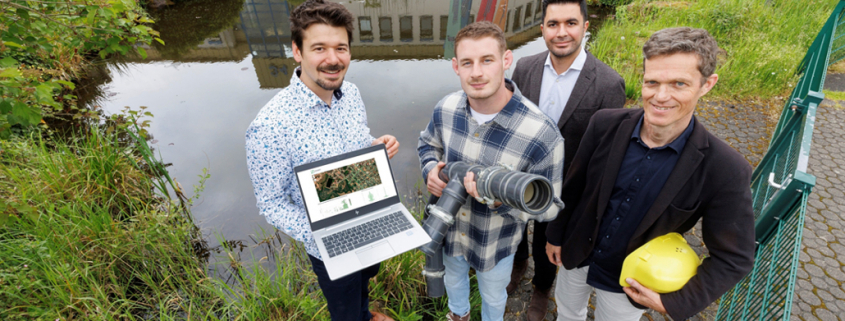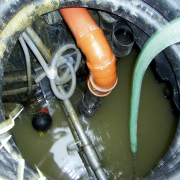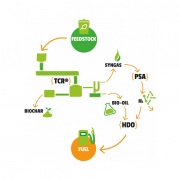Start-Up Develops Software for Design & Optimization of Urban Drainage Systems
Germany has a well-developed infrastructure with sewer networks and sewage treatment plants to collect rainwater and wastewater. The situation is different in developing countries, where this is often lacking. A start-up from the University Kaiserslautern-Landau wants to remedy this situation.
According to the university, the company offers its “ZIGGURAT” software for this purpose, “which can automatically plan and optimize drainage systems sustainably. The technology also takes into account the blue-green infrastructure, i.e. possible water storage and technical measures for infiltration and evaporation of rainwater.”
As underlined, around half of the world population still lives without a sewerage system, and new urban areas are constantly being built without proper drainage. In its Sustainable Development Goals, the United Nations has set itself the goal of providing access to clean water and sanitation for all. “To achieve this, however, a corresponding infrastructure is needed.”
But planning such sewer networks for wastewater, rainwater or combined sewage is complex and requires a lot of expertise. “Various parameters play a role, such as layout, the degree of de- or centralization, sewer diameters and gradient, laying depths, pumping and storage facilities,” Timo Dilly from the founding team was quoted. His team in Kaiserslautern is currently developing software that can be used to automatically plan urban drainage systems in a sustainable manner. “It is based, among other things, on linking a large number of generally applicable technical rules of civil engineering planning and mathematical methods that can be used to generate sensible solution variants,” Dilly explained. “We have developed our own algorithms for this. All this is based on current findings from our own research in urban drainage and hydro informatics.” Climate change also plays a role in the planning of such drainage systems. “Dealing with rainwater has to be completely rethought when you consider increasing weather extremes. We need ways to store rainwater, but also natural elements such as sufficient green spaces.” In this context, people also talk about blue-green infrastructure, which plays an increasingly important role in planning new urban drainage systems and is also planned for the software. In this respect, ZIGGURAT would also be suitable for local cities and municipalities that want to adapt their drainage systems in the future.
Dilly’s colleagues Dr. Amin E. Bakhshipour, Professor Dr. Ulrich Dittmer and Ralf Habermehl from the Department of Urban Water Management at University Kaiserslautern-Landau are involved in the company too. They are supported by Marius Lauer, who contributes business management knowledge. In the future, they would like to make their software ZIGGURAT available on an online platform where interested parties can create an account for a fee. In addition to the software, the team from Kaiserslautern also provides their expertise and offers support in planning, for example.
On its way to independence, the company is supported by an “EXIST-Gründerstipendium” from the Federal Ministry of Economics and Climate Protection and the European Social Fund for “Business Start-ups from Science”.
(Published in GLOBAL RECYCLING Magazine 3/2023, Page 46, Photo: RPTU/View, Voss)







